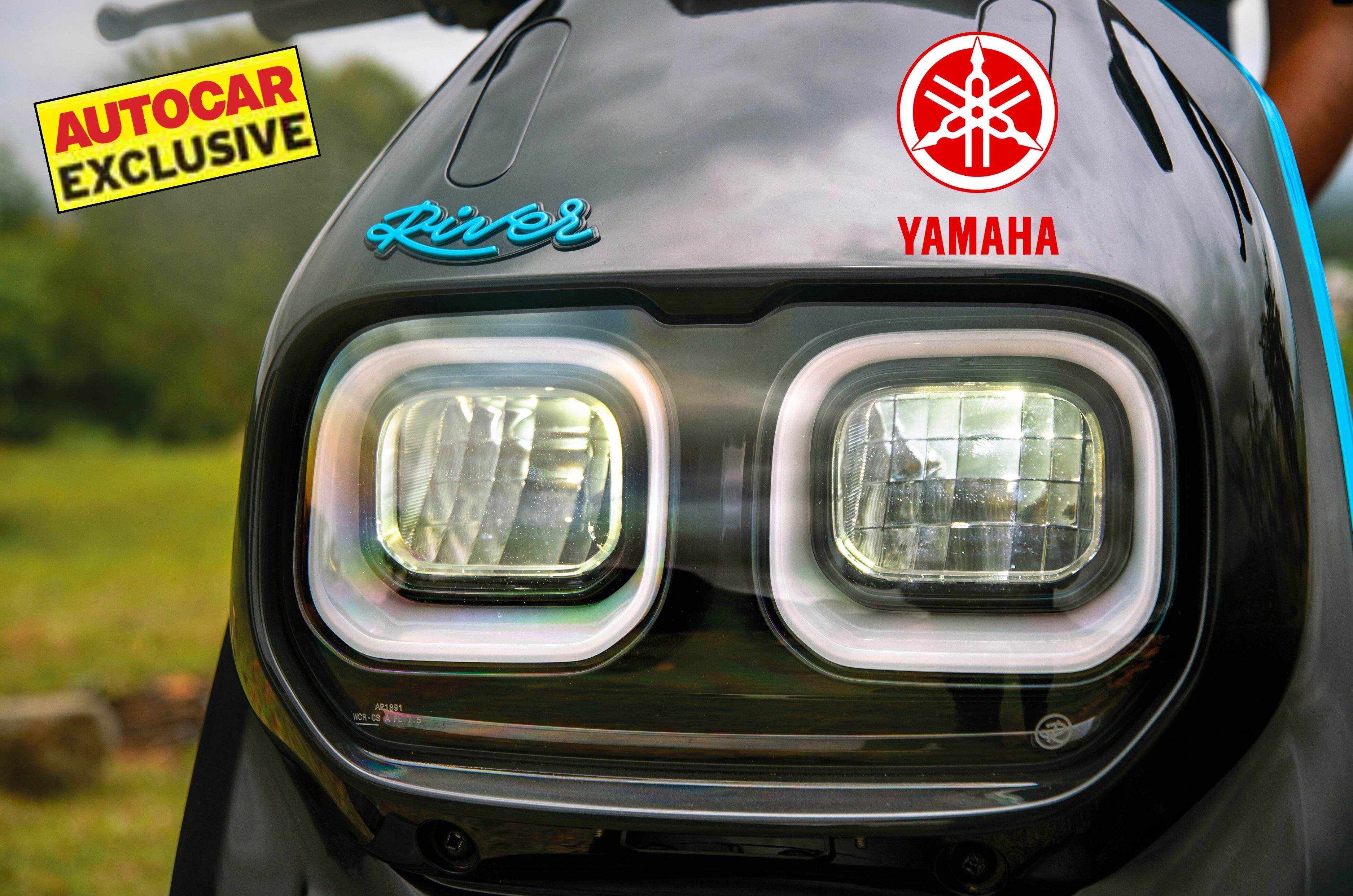In a decisive strategic pivot, Yamaha Motor Company has teamed up with Indian startup River to develop and produce its first global electric scooter, codenamed RY01. The move marks not just Yamaha’s entry into the high-volume Indian EV market, but also a fundamental shift in its product strategy – away from the low-speed scooters it launched in Europe and toward a performance-oriented platform aligned with its core brand DNA.
- Yamaha e-scooter will have a different design from the River Indie
- Both will share their powertrain and BMS
- Yamaha is also working on a separate EV platform
Yamaha e-scooter launch details
It will be made in India and exported globally
Yamaha is betting on River’s platform for its India-centric electric debut, leveraging the startup for innovation and execution. Slated for production between July and September 2025, the RY01 is being co-developed by Yamaha’s global engineering teams in Japan, the US and Europe, alongside River in Bengaluru. While Yamaha retains project ownership, River has been entrusted with complete execution responsibilities, including engineering, R&D, powertrain, battery integration, and manufacturing.
While the Yamaha electric scooter will likely be based on the same main platform as the River Indie, sharing its powertrain and BMS, it will have a different design language, more in line with Yamaha’s sporty ethos. This Yamaha electric scooter will be built by River in India and exported globally.
Alongside the River Indie-based EV, Yamaha is also working on a global EV platform, for which it will take contributions from major global markets (including ours) to ensure it aligns with customer needs. This future Yamaha electric scooter is lined up for 2026-27.
Coming back to the RY01, Yamaha’s partnership with River is similar to its collaboration with Taiwanese giant GoGoro, wherein it partners with an existing company to cater to that particular market. The company’s electric scooters in Europe, like the Neo’s, are more urban-utility-focused, with modest performance – a format it has consciously decided not to replicate in India. “India is a performance-sensitive market, and Yamaha’s legacy here is built on excitement, speed, and sporty appeal,” said a person close to the development. “With River’s platform and engineering capabilities, Yamaha sees a chance to reassert that identity in the EV age.”
The development is critical, as India’s electric two-wheeler market is witnessing rapid growth and heightened competition. In FY25, the segment crossed the 1 million-unit mark for the first time, with 1.15 million units sold, marking a 20-21 percent YoY growth. EVs now account for over 6 percent of total two-wheeler sales, driven by rising fuel costs, improved urban adoption, and continued policy support under the PM e-Drive scheme.
Ola Electric retained its lead, followed closely by TVS Motor (22 percent share), Bajaj Auto (21 percent), Ather Energy (14 percent), and Hero MotoCorp’s Vida (7 percent). This momentum is expected to continue into FY26, with projections of 1.3-1.4 million units.
Amidst this surge, other Japanese giants are finally entering the fray. Honda launched the Activa e: and QC1 at the Bharat Mobility Global Expo 2025, and deliveries of both have begun. Suzuki will soon follow with its e-Access, which is slated for launch in the next few months. These products are aimed at the family scooter segment, squarely targeting bestsellers like Ola S1, TVS iQube, Bajaj Chetak and Ather Rizta. Their late arrival, however, means gaining a meaningful share will require more than brand equity, especially in a fragmented market between legacy players and startups.
River, which launched its Indie e-scooter in 2023, has built a strong reputation for performance, reliability and design, aligning closely with Yamaha’s aspirations. Its plant in Bengaluru is compatible with Yamaha’s quality and production standards, but it is also helping accelerate go-to-market timelines. The Yamaha e-scooter, codenamed RY01, is expected to reach showrooms before the end of this financial year.
This partnership is underpinned by Yamaha’s USD 40 million Series B investment in River in 2024. But this is more than a financial stake – a strategic collaboration. Yamaha is leveraging River’s innovation, agility, and localisation capabilities to fast-track EV development, especially for markets where cost, performance, and speed-to-market are critical.
“The idea and product DNA are Yamaha’s, but River’s execution capabilities are making it possible,” the source added. “This isn’t a supplier relationship – it’s a strategic alliance.”
River will contribute not just to localised cost efficiency, but also its own powertrain and battery technology, both of which are integral to RY01’s performance credentials. Yamaha’s decision to bypass its global platforms in favour of this India-developed scooter underlines a conscious positioning shift for the brand – to stay relevant and competitive in one of the most dynamic two-wheeler markets globally.
With River eyeing retail expansion across India and exports to 11 countries, this alliance could become a blueprint for Yamaha’s future product development in India and global EV rollouts.
Also See: Entry level TVS electric scooter launching before festive season


